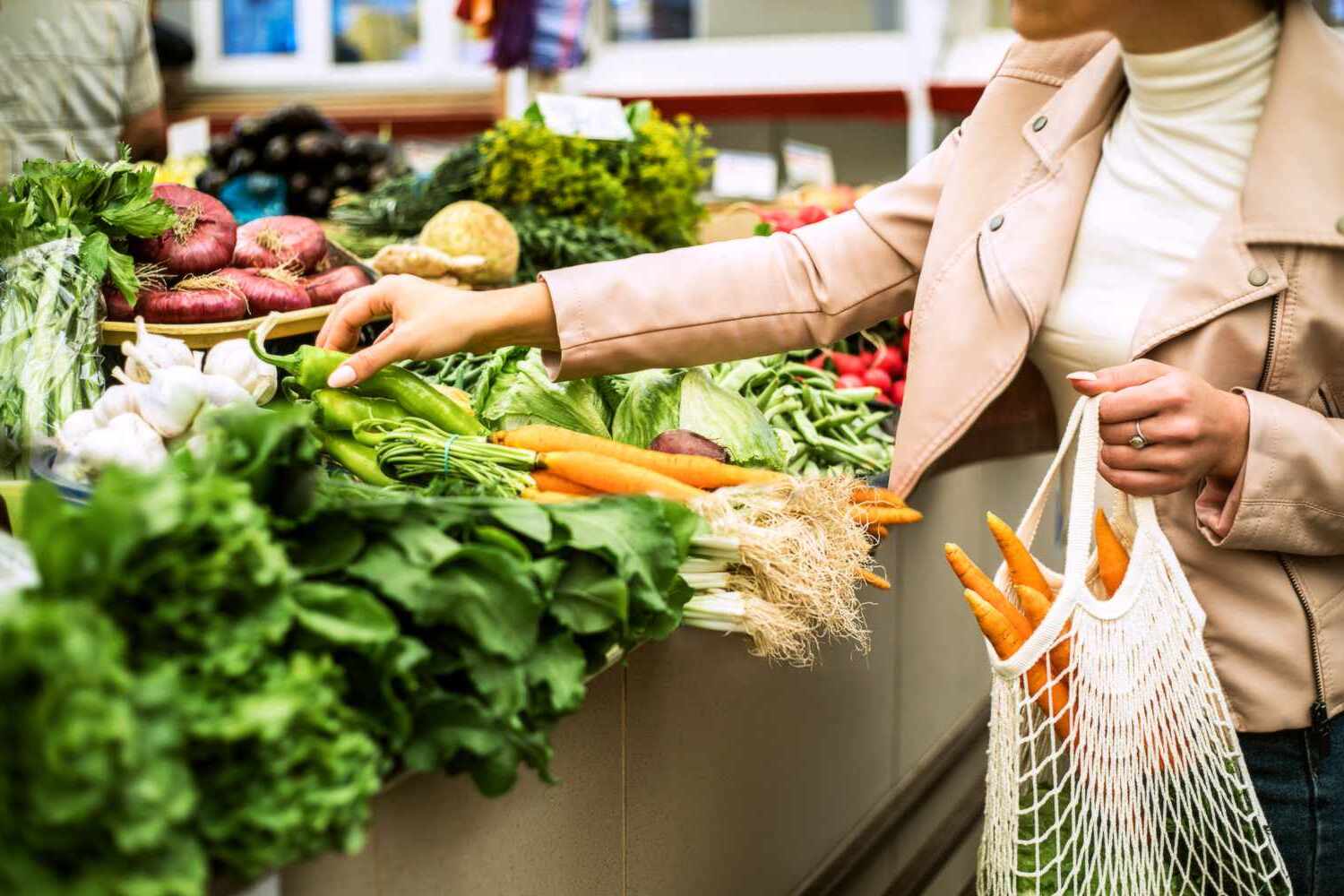
Sustainable ingredients are more than just a trend; they are a necessity for our planet's future. But what exactly makes an ingredient sustainable? Sustainable ingredients are those sourced in ways that protect the environment, support fair labor practices, and promote biodiversity. They minimize waste, reduce carbon footprints, and often come from renewable resources. By choosing products with these ingredients, we contribute to a healthier planet and a more ethical supply chain. From organic farming to eco-friendly packaging, the journey of sustainable ingredients is fascinating and vital. Ready to learn more? Here are 39 facts that will change how you think about what goes into your favorite products.
Key Takeaways:
- Sustainable ingredients are sourced and produced in ways that minimize environmental impact, support local communities, and promote biodiversity. They benefit the planet, local economies, and our health.
- Look for certifications, check the source, choose seasonal and local options, opt for minimal packaging, and read labels to identify sustainable ingredients. They can have a positive impact on your health and well-being.
What Are Sustainable Ingredients?
Sustainable ingredients are sourced and produced in ways that minimize environmental impact, support local communities, and promote biodiversity. They are essential for a healthier planet and a more ethical food system. Here are some fascinating facts about sustainable ingredients.
-
Organic Farming: Organic farming avoids synthetic pesticides and fertilizers, promoting healthier soil and ecosystems.
-
Fair Trade: Fair Trade certification ensures that farmers receive fair wages and work in safe conditions.
-
Regenerative Agriculture: This farming method focuses on restoring soil health and increasing biodiversity.
-
Local Sourcing: Buying local reduces carbon emissions from transportation and supports local economies.
-
Heirloom Varieties: Heirloom plants are grown from seeds passed down through generations, preserving genetic diversity.
Benefits of Sustainable Ingredients
Using sustainable ingredients has numerous benefits, from environmental protection to improved health. Let's explore some of these advantages.
-
Reduced Carbon Footprint: Sustainable farming practices often result in lower greenhouse gas emissions.
-
Healthier Soil: Practices like crop rotation and composting improve soil health and fertility.
-
Water Conservation: Sustainable agriculture often uses less water and employs techniques to conserve it.
-
Biodiversity: Sustainable farming supports a variety of plant and animal species, enhancing ecosystem resilience.
-
Nutrient-Rich Foods: Foods grown sustainably are often more nutritious due to healthier soil.
Challenges in Sustainable Ingredient Sourcing
Despite the benefits, sourcing sustainable ingredients can be challenging. Here are some obstacles that need to be addressed.
-
Higher Costs: Sustainable practices can be more expensive, leading to higher prices for consumers.
-
Limited Availability: Not all regions have access to sustainable ingredients, limiting options for some consumers.
-
Certification Confusion: Multiple certification labels can confuse consumers about what is truly sustainable.
-
Supply Chain Issues: Ensuring that all parts of the supply chain adhere to sustainable practices can be complex.
-
Consumer Awareness: Many people are still unaware of the importance of sustainable ingredients.
Innovations in Sustainable Ingredients
Innovations are making it easier to source and use sustainable ingredients. Here are some exciting developments.
-
Vertical Farming: Growing crops in vertically stacked layers reduces land use and water consumption.
-
Aquaponics: This system combines fish farming with hydroponics, creating a closed-loop system that conserves resources.
-
Lab-Grown Meat: Cultivating meat in a lab reduces the environmental impact of traditional livestock farming.
-
Plant-Based Alternatives: Innovations in plant-based foods offer sustainable alternatives to animal products.
-
Blockchain Technology: Blockchain can track the journey of ingredients, ensuring transparency and sustainability.
Popular Sustainable Ingredients
Certain ingredients are well-known for their sustainability. Here are some popular choices.
-
Quinoa: This ancient grain is drought-resistant and nutrient-rich.
-
Chia Seeds: Chia requires minimal water and is packed with nutrients.
-
Lentils: Lentils enrich the soil with nitrogen, reducing the need for synthetic fertilizers.
-
Seaweed: Seaweed farming requires no freshwater or fertilizers and absorbs carbon dioxide.
-
Mushrooms: Mushrooms can be grown on agricultural waste, making them highly sustainable.
How to Identify Sustainable Ingredients
Knowing how to identify sustainable ingredients can help you make better choices. Here are some tips.
-
Look for Certifications: Certifications like USDA Organic, Fair Trade, and Rainforest Alliance indicate sustainability.
-
Check the Source: Research where and how the ingredient is produced.
-
Seasonal and Local: Choose ingredients that are in season and locally sourced.
-
Minimal Packaging: Opt for products with minimal or eco-friendly packaging.
-
Read Labels: Look for information about sustainable practices on product labels.
Impact of Sustainable Ingredients on Health
Sustainable ingredients can have a positive impact on your health. Here are some ways they benefit you.
-
Fewer Pesticides: Organic ingredients have lower levels of harmful pesticides.
-
Higher Nutrient Levels: Sustainable farming practices often result in more nutrient-dense foods.
-
Better Taste: Many people find that sustainably grown foods taste better.
-
No GMOs: Organic and sustainable ingredients are often non-GMO.
-
Supports Mental Health: Knowing you are making ethical choices can improve mental well-being.
Future of Sustainable Ingredients
The future of sustainable ingredients looks promising with ongoing research and innovation. Here are some trends to watch.
-
Edible Insects: Insects are a sustainable protein source with a low environmental impact.
-
Algae: Algae is being explored as a sustainable food and biofuel source.
-
Precision Agriculture: Using technology to optimize farming practices can increase sustainability.
-
Urban Farming: Growing food in urban areas reduces transportation emissions and increases local food availability.
Sustainable Ingredients Matter
Sustainable ingredients aren't just a trend. They play a crucial role in protecting our planet. By choosing products made with eco-friendly materials, we help reduce pollution, conserve resources, and support ethical farming practices. These choices can lead to healthier ecosystems and better living conditions for future generations.
Moreover, sustainable ingredients often mean fewer chemicals and additives, which is better for our health. Whether it's food, cosmetics, or household items, opting for sustainable options can make a big difference. It's about making mindful decisions that benefit both us and the environment.
Next time you're shopping, look for labels that highlight sustainability. Every small step counts. By supporting brands that prioritize eco-friendly practices, we can drive change and promote a greener, healthier world. Sustainable ingredients matter, and our choices can shape a better future.
Frequently Asked Questions
Was this page helpful?
Our commitment to delivering trustworthy and engaging content is at the heart of what we do. Each fact on our site is contributed by real users like you, bringing a wealth of diverse insights and information. To ensure the highest standards of accuracy and reliability, our dedicated editors meticulously review each submission. This process guarantees that the facts we share are not only fascinating but also credible. Trust in our commitment to quality and authenticity as you explore and learn with us.


